In today’s rapidly evolving digital landscape, harnessing the power of cloud computing is not just a choice but a necessity for businesses seeking to scale, innovate, and stay competitive. Cloud computing has revolutionized the way organizations store, process, and manage their data and applications. Organizations are opting for cloud computing services to stay ahead of the market. To help you with the latest Cloud Computing Tools, we have come up with the list of top 20 Cloud Computing tools, each with its own unique features, that are at the forefront of this transformative technology. From industry giants like AWS and Azure to specialized solutions in automation, security, and monitoring, this curated list will help you navigate the cloud computing ecosystem and make informed decisions to propel your business into the future.
Top 20 Cloud Computing Tools:
Amazon Web Services (AWS)
Amazon Web Services (AWS) is a leading cloud computing platform offering a vast array of services. AWS is renowned for its scalability, reliability, and global reach, making it a top choice for businesses worldwide.
Top features:
| Broad Service Portfolio |
AWS provides over 200 services, covering computing, storage, databases, machine learning, and more. |
| Global Network |
Its global network spans multiple regions and Availability Zones, ensuring high availability and low-latency connections. |
| Security |
AWS offers robust security features, including identity and access management, encryption, and compliance certifications. |
| Elasticity |
Users can easily scale resources up or down based on demand, optimizing costs. |
| AI and Machine Learning |
AWS provides powerful AI and ML tools, like Amazon SageMaker, for data-driven insights. |
Microsoft Azure
Microsoft Azure is a comprehensive cloud computing platform and service offered by Microsoft. It is known for its strong integration with Microsoft products and services, making it a top choice for organizations already using Microsoft technologies. With a wide range of services, strong enterprise support, and global data center presence, Azure is a popular choice for businesses looking to leverage the cloud for various purposes, including development, AI, and data analytics.
Top Features:
| Hybrid Capabilities |
Azure seamlessly integrates with on-premises data centers, allowing for a hybrid cloud approach. |
| Windows Integration |
Ideal for Windows-based environments, offering Windows Server and SQL Server support. |
| AI and IoT |
Azure provides robust tools for AI, machine learning, and Internet of Things (IoT) solutions. |
| DevOps Integration |
Azure DevOps services enable end-to-end application development and deployment. |
| Scalability |
Auto-scaling and load-balancing options ensure applications can handle variable workloads. |
Google Cloud Platform (GCP)
Google Cloud Platform (GCP) is Google’s cloud computing platform that offers a suite of cloud services, infrastructure, and data analytics tools. It is known for its expertise in data analytics and machine learning, making it a top choice for organizations seeking advanced data solutions. GCP is popular among organizations seeking cutting-edge data analytics, machine learning, and AI capabilities, along with reliable cloud infrastructure and global reach.
Special Features:
| Data and Analytics |
GCP excels in big data analytics, offering tools like BigQuery for high-speed data processing and analytics. |
| Machine Learning and AI |
It provides robust AI and ML services through TensorFlow and AutoML. |
| Containerization |
GCP offers Google Kubernetes Engine (GKE) for container orchestration and management. |
| Global Network |
Google’s vast global network ensures low-latency, high-performance connections. |
| Security |
Google’s security infrastructure is highly advanced, including Identity and Access Management (IAM) and advanced encryption. |
IBM Cloud
IBM’s cloud computing platform has a strong focus on hybrid and multi-cloud solutions, as well as enterprise-grade services. IBM Cloud is well-suited for large enterprises looking to modernize their IT infrastructure and embrace hybrid or multicloud strategies while benefitting from IBM’s expertise in enterprise solutions and services.
Special Features:
| Hybrid Cloud |
IBM Cloud emphasizes hybrid cloud solutions, allowing businesses to integrate on-premises infrastructure with cloud services. |
| Enterprise-Grade Services |
It offers a wide range of enterprise solutions, including IBM Watson for AI and analytics, and IBM Cloud Pak for application modernization. |
| Red Hat Integration |
IBM’s acquisition of Red Hat enhances its Kubernetes and container capabilities with OpenShift. |
| Quantum Computing |
IBM Quantum allows access to quantum computing resources for research and development. |
| Security and Compliance |
IBM Cloud prioritizes security and offers a wide array of security and compliance tools and services. |
Oracle Cloud
Oracle Cloud is a formidable player in the realm of cloud computing, offering a wide spectrum of services designed for enterprises. At its core, Oracle Cloud specializes in delivering exceptional database solutions and enterprise applications, including ERP and CRM software. Its infrastructure services provide high-performance computing and storage options, while autonomous services reduce administrative overhead.
Special Features:
| Autonomous Database |
Self-managing, self-securing, and self-repairing databases. |
| Enterprise Applications |
Cloud-based versions of Oracle’s ERP, HCM, and CRM software. |
| Hybrid Cloud |
Support for integrating on-premises systems with the cloud. |
| Comprehensive Database Services |
A wide array of database options for different needs. |
| Security and Compliance |
Strong focus on data security and regulatory compliance. |
Alibaba Cloud
Alibaba Cloud, also known as Aliyun, is China’s leading cloud computing and artificial intelligence (AI) services provider and one of the world’s top cloud providers. It offers a broad range of cloud services tailored for global enterprises, startups, and developers. Alibaba Cloud boasts a robust global network, extensive data centers, and cutting-edge technologies to support various cloud computing needs.
Special Features:
| Global Reach |
Alibaba Cloud has data centers in multiple regions worldwide, ensuring low-latency access. |
| Elastic Computing |
It offers scalable computing resources for on-demand requirements. |
| E-commerce Integration |
Tailored solutions for e-commerce and retail businesses. |
| Blockchain Services |
Alibaba Cloud provides blockchain as a service (BaaS) for various applications. |
| IoT and Edge Computing |
IoT and edge computing capabilities for IoT projects. |
CloudHub
CloudHub is a cloud-based integration platform provided by MuleSoft, designed to facilitate seamless connectivity and data exchange between various applications and systems. It acts as a central hub for managing, monitoring, and automating integrations, making it a vital tool for businesses pursuing digital transformation and modernization efforts.
Special Features:
| Unified Integration |
CloudHub allows for the integration of diverse applications, data sources, and APIs, simplifying complex connectivity challenges. |
| Highly Scalable |
It offers auto-scaling capabilities to handle varying workloads and traffic spikes, ensuring consistent performance. |
| Security and Compliance |
CloudHub provides robust security features, including data encryption and identity management, ensuring data privacy and compliance with regulations. |
| Monitoring and Analytics |
It offers real-time monitoring, logging, and analytics tools to track integration performance and troubleshoot issues promptly. |
| API-Led Connectivity |
CloudHub follows an API-led approach, enabling organizations to create reusable APIs and expose them securely for broader use, fostering agility and innovation in application development. |
Informatica
Informatica is a renowned cloud computing tool used for data integration, management, and analytics. It facilitates the seamless flow of data across various cloud and on-premises systems, ensuring data quality, security, and compliance.
Special features:
| Comprehensive Data Integration |
Informatica offers a wide range of data integration services, including ETL (Extract, Transform, Load) processes, data synchronization, and real-time data ingestion. |
| Data Quality and Governance: |
It provides robust data quality and governance features, allowing users to cleanse, enrich, and standardize data for accuracy and compliance. |
| Cloud-Native Capabilities |
Informatica is built for the cloud, enabling easy integration with popular cloud platforms like AWS, Azure, and GCP, as well as on-premises systems. |
| AI-Powered Data Management |
Informatica employs AI and machine learning for data profiling, metadata management, and predictive analytics, enhancing data insights. |
| Scalability and Performance |
The tool scales dynamically to handle large data volumes and offers high performance for data processing and analytics, supporting enterprise-level needs. |
Puppet
Puppet is a powerful cloud computing tool that automates repetitive tasks and rapidly deploys critical apps and services. Puppet uses declarative code to define the desired state of infrastructure components, making it easier to scale, maintain, and troubleshoot cloud-based systems. Puppet’s versatility extends beyond servers to manage applications and network configurations, making it an essential tool for DevOps teams in cloud environments.
Special Features:
| Declarative Language |
Puppet employs a declarative language to describe system configurations, simplifying infrastructure management. |
| Agent-Based Model |
Puppet uses agent nodes to enforce configurations and maintain desired states on remote servers. |
| Module Ecosystem |
Puppet Forge offers a vast library of pre-built modules for configuring various software and services. |
| Real-time Reporting |
Provides real-time visibility into infrastructure changes and compliance with desired configurations. |
| Integration |
Puppet integrates seamlessly with popular cloud platforms and container orchestration tools, enhancing automation capabilities in diverse environments. |
Red Hat OpenShift
Red Hat OpenShift is a leading Kubernetes container platform for cloud computing. It simplifies container orchestration, making it easier to deploy, manage, and scale containerized applications.
Special Features:
| Kubernetes Expertise |
Built on Kubernetes, OpenShift leverages its powerful container management capabilities. |
| Developer-Friendly |
Offers developer tools and a streamlined development workflow for container-based applications. |
| Multi-Cloud Compatibility |
Supports hybrid and multicloud deployments, enhancing flexibility. |
| Security |
Provides robust security features, including role-based access control (RBAC) and container image scanning. |
| Operator Framework |
Automation with Operators simplifies application lifecycle management. |
Cisco Cloud
Cisco Cloud is a cloud computing solution provided by Cisco Systems, a leading networking and technology company. Cisco Cloud offers a range of cloud-based services designed to enhance networking, security, and application performance within cloud environments. It is known for its focus on optimizing cloud networking and ensuring secure and efficient cloud operations.
Special Features:
| Cloud Networking |
Cisco Cloud provides advanced networking solutions for cloud environments, ensuring reliable and low-latency connections. |
| Security |
It offers robust cloud security features, including threat detection and mitigation, ensuring data protection in the cloud. |
| Application Performance |
Cisco Cloud optimizes application performance by providing tools for traffic management and load balancing. |
| Hybrid Cloud |
It supports hybrid cloud deployments, enabling seamless integration between on-premises and cloud resources. |
| Multi-Cloud Management |
Cisco Cloud allows businesses to manage multiple cloud environments from a single dashboard, simplifying cloud operations and governance. |
Docker
Docker is a containerization platform that simplifies application packaging and deployment. It enables developers to package applications and their dependencies into containers, ensuring consistent execution across different environments. Containers are lightweight and efficient, making them ideal for cloud computing.
Special Features:
| Containerization |
Docker creates lightweight, isolated containers for applications, improving efficiency and portability. |
| Portability |
Docker containers can run on any platform that supports Docker, providing flexibility in cloud deployments. |
| Version Control |
Docker images can be versioned, allowing easy rollbacks and updates. |
| Microservices |
Docker supports microservices architecture, enabling scalable and modular application development. |
| DevOps Integration |
It integrates seamlessly with DevOps tools, automating application deployment and management. |
Kubernetes
Kubernetes is an open-source container orchestration platform used extensively in cloud computing. It simplifies the deployment, scaling, and management of containerized applications, enhancing application reliability and scalability in cloud environments. Kubernetes abstracts underlying infrastructure, allowing applications to run consistently across various cloud providers and on-premises data centers.
Special Features:
| Container Orchestration |
Kubernetes automates container deployment, scaling, and load balancing, ensuring applications run efficiently. |
| Portability |
It provides a consistent environment across clouds, making it easy to move |
| Self-Healing |
Kubernetes monitors and automatically replaces unhealthy containers, ensuring high availability. |
| Horizontal Scaling |
Applications can be effortlessly scaled horizontally to meet changing demand, optimizing resource utilization. |
| Ecosystem |
Kubernetes has a rich ecosystem with extensions, tools, and a vibrant community, making it versatile and adaptable to various use cases and industries. |
HashiCorp Terraform
HashiCorp Terraform is a leading Infrastructure as Code (IaC) tool for cloud computing. It enables users to define, provision, and manage infrastructure resources using code, making it easier to automate cloud deployments and maintain infrastructure configurations.
Special Features:
| IaC Mastery |
Terraform excels in infrastructure automation, allowing you to define resources in declarative code. |
| Multi-Cloud |
It supports multiple cloud providers, making it versatile for hybrid or multicloud deployments. |
| State Management |
Terraform keeps track of resource states, enabling precise updates and minimizing disruptions. |
| Module Reusability |
Users can create and share reusable infrastructure modules, enhancing collaboration and efficiency. |
| Ecosystem |
Terraform benefits from a rich ecosystem of providers and modules, streamlining integration with various cloud services and configurations. |
Jenkins
Jenkins is a widely used open-source automation server in the realm of cloud computing tools. It’s primarily used for continuous integration and continuous delivery (CI/CD) pipelines.
Special Features:
| Extensibility |
Jenkins supports a vast array of plugins for customization. |
| Distributed Builds |
It can distribute tasks across multiple machines for faster builds. |
| Integration |
Seamless integration with version control systems like Git and various cloud providers. |
| Large Community |
Benefit from a large and active community for support and plugin development. |
| Automation |
Jenkins automates the building, testing, and deployment of software, improving development workflows and productivity. |
Final words:
The world of cloud computing is continually evolving, and the landscape of cloud computing tools is expanding to meet the diverse needs of businesses and organizations across the globe. In this blog, we’ve explored the top 15 cloud computing tools, each with its unique set of features and capabilities. From industry giants like AWS, Azure, and Google Cloud, to specialized tools in automation, security, and monitoring, these platforms empower businesses to innovate, scale, and thrive in the digital age.
The right choice among these tools depends on your specific requirements, whether it’s seamless integration with existing systems, advanced data analytics, or robust security. As technology advances, these tools will continue to shape the future of cloud computing, offering even more innovative solutions for the challenges and opportunities that lie ahead. Stay informed and make the best choices for your organization’s journey into the cloud.
The post 15 Best Cloud Computing Tools with Features appeared first on .
Tags:
- Cloud Computing
- analytics tools
- cloud computing
- cloud computing services
- cloud computing tools
- data analytics tools
- free cloud server

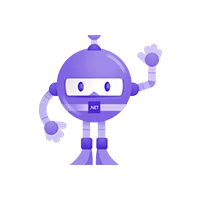 .NET MAUI Development
.NET MAUI Development
 Xamarin Application Development
Xamarin Application Development
 React Native App Development
React Native App Development
 iOS Application Development
iOS Application Development
 Android Application Development
Android Application Development
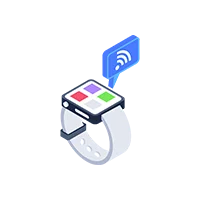 Android Wear App Development
Android Wear App Development
 Ionic Development
Ionic Development
 iBeacon Application Development
iBeacon Application Development
 Universal Windows Platform (UWP)
Universal Windows Platform (UWP)
 Kotlin Application Development
Kotlin Application Development
 Swift Application Development
Swift Application Development
 Flutter Application Development
Flutter Application Development
 PWA Application Development
PWA Application Development
 Offshore Software Development
Offshore Software Development
 Custom Application Development
Custom Application Development
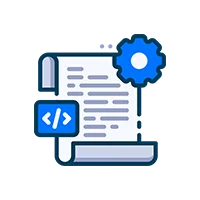 Front-End Development
Front-End Development
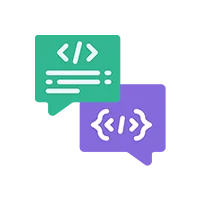 Full Stack Development
Full Stack Development
 AI & Machine Learning
AI & Machine Learning
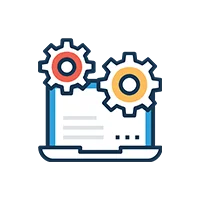 Custom CRM Solutions
Custom CRM Solutions
 Flask Software Development
Flask Software Development
 Electron JS Development
Electron JS Development
 ChatGPT Development
ChatGPT Development
Telemedicine App Development
Build Smart Telemedicine Platform
Beauty & Salon App Solutions
Hire Workato Experts
Workato Consulting & Support
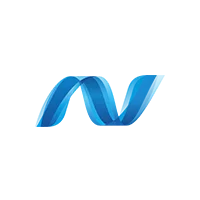 .NET Application Development
.NET Application Development
 .NET Nuke Development
.NET Nuke Development
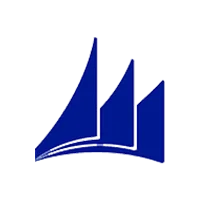 Microsoft Dynamics CRM
Microsoft Dynamics CRM
 Microsoft Small Business Solution
Microsoft Small Business Solution
 VB .NET Development
VB .NET Development
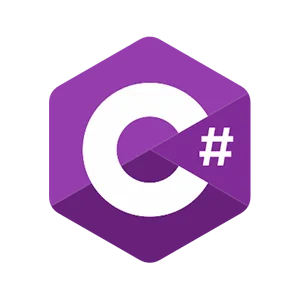 C# Development
C# Development
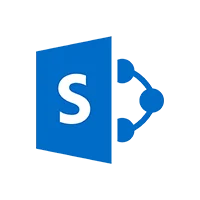 Sharepoint Migration
Sharepoint Migration
 Sharepoint Development
Sharepoint Development
 ASP.NET Core Development
ASP.NET Core Development
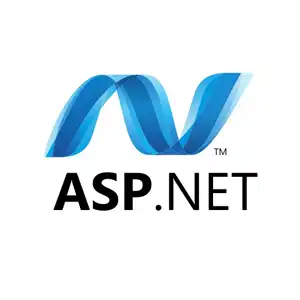 ASP.NET Development
ASP.NET Development
 ASP.NET MVC Development
ASP.NET MVC Development
 Kentico CMS
Kentico CMS
 Umbraco CMS
Umbraco CMS
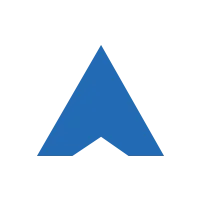 AJAX Development
AJAX Development
 Agile Development
Agile Development
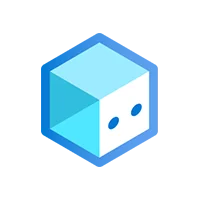 Microsoft Bot
Microsoft Bot
 Microsoft Blazor
Microsoft Blazor
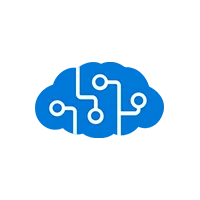 Microsoft Azure Cognitive
Microsoft Azure Cognitive

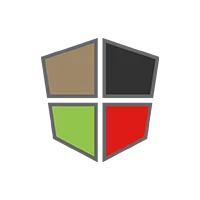 Mean Stack Development
Mean Stack Development
 Vue JS Development
Vue JS Development
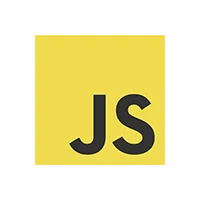 Javascript Development
Javascript Development
 Angular JS Development
Angular JS Development
 Next JS development
Next JS development
 Java Development
Java Development
 Python Development
Python Development
 Django Development
Django Development
 Cherrypy Development
Cherrypy Development
 NodeJS Development
NodeJS Development
 Laravel Development
Laravel Development
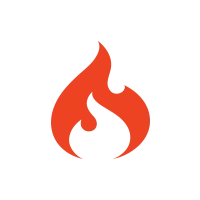 CodeIgniter Development
CodeIgniter Development
 Zend Development
Zend Development
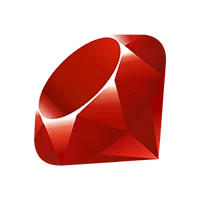 Ruby on Rails Development
Ruby on Rails Development
 CakePHP Development
CakePHP Development
 PHP Website Development
PHP Website Development
 Symfony Development
Symfony Development
 Drupal Development
Drupal Development
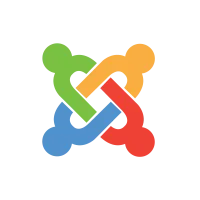 Joomla Development
Joomla Development
 Wordpress Development
Wordpress Development
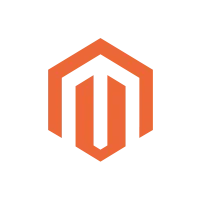 Magento Development
Magento Development
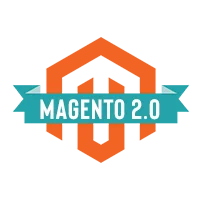 Magento 2.0 Development
Magento 2.0 Development
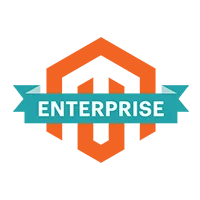 Magento Enterprise
Magento Enterprise
 Shopping Cart Development
Shopping Cart Development
 Prestashop Development
Prestashop Development
 Shopify Development
Shopify Development
 Open Cart Development
Open Cart Development
 WooCommerce Development
WooCommerce Development
 BigCommerce Development
BigCommerce Development
 NopCommerce Development
NopCommerce Development
 Virto Commerce Development
Virto Commerce Development
 AspDotNetStorefront Development
AspDotNetStorefront Development
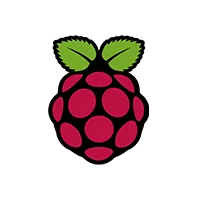 RaspBerry Pi
RaspBerry Pi
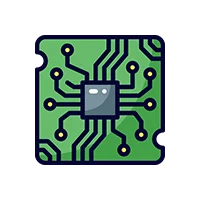 Firmware Software Development
Firmware Software Development
 ESP 32 Software Development
ESP 32 Software Development
 Embedded Development
Embedded Development
 Internet of Things
Internet of Things
 Nordic Development
Nordic Development
 HTML 5
HTML 5
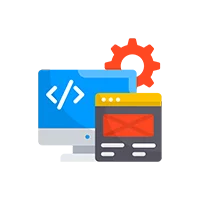 UI/UX Design
UI/UX Design
 Graphic Design
Graphic Design
 Adobe Photoshop
Adobe Photoshop
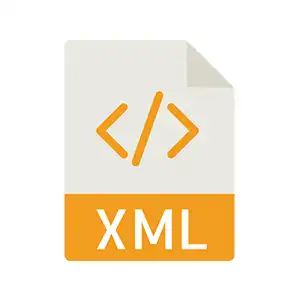 XML Application Development
XML Application Development
 Cloud Computing Solutions
Cloud Computing Solutions
 Azure Cloud App Development
Azure Cloud App Development
 AWS Development
AWS Development
 Google Cloud Development
Google Cloud Development
 SQL Programming Development
SQL Programming Development
 MySQL Development
MySQL Development
 MongoDB Development
MongoDB Development
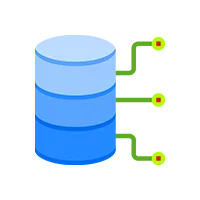 Big Data
Big Data
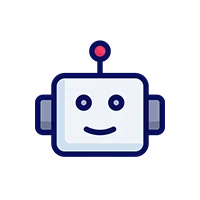 Robotic Process Automation
Robotic Process Automation
 Social Media Marketing
Social Media Marketing
 Search Engine Optimization
Search Engine Optimization
 QA Testing
QA Testing
 Software Testing
Software Testing
 Software Security
Software Security
 Maintenance And Support
Maintenance And Support
 I.T. Consulting Services
I.T. Consulting Services
 Business Intelligence
Business Intelligence
 YII Development
YII Development
 Data Analysis
Data Analysis
 Alexa Skills Development
Alexa Skills Development
 On Demand App for Mobile repairing services
On Demand App for Mobile repairing services
 On Demand App for Car Service Booking
On Demand App for Car Service Booking
 On Demand App for Cleaning Services
On Demand App for Cleaning Services
 On Demand App for Pharmacy
On Demand App for Pharmacy
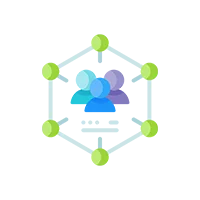 On Demand Dedicated Developers
On Demand Dedicated Developers






Leave a Reply